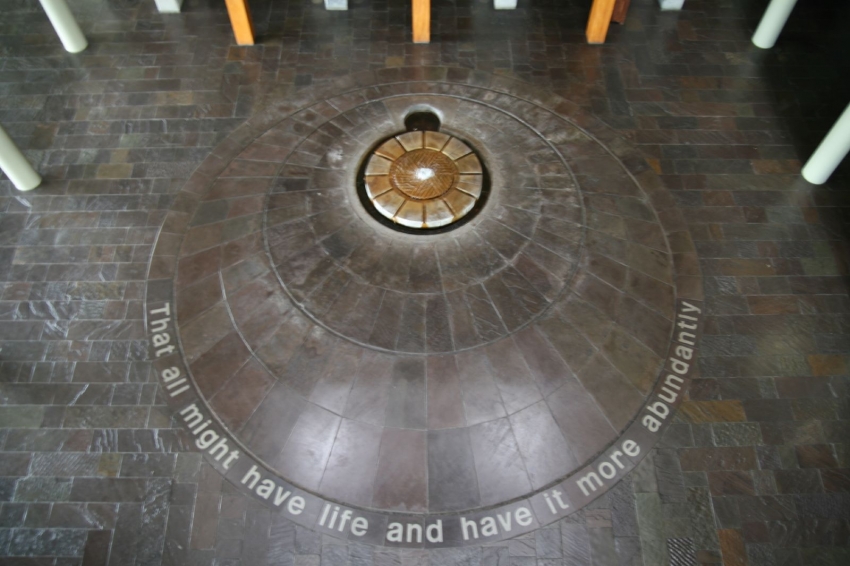By JOCK MCCONNACHIE
“The Monument is looking for a new name…”, so said the advertisement in last week’s Grocott’s Mail. “The Monument” is the 1820 Settlers Monument atop Gunfire Hill, Grahamstown and although the announcement didn’t say so the intention is obviously to remove any reference to the 1820 Settlers from the Monument’s name.
The reason as stated in the document motivating why the Monument needs a new name is that the building as presently named is “for many South Africans, alienating and seen by many as monument to conquest and colonisation”. The motivation goes on to say that the “ethos and operations” of the Monument should be based on the collective values of post 1994 South Africa” as enshrined in South Africa’s Constitution “rather than solely the values and ideals of the British Settlers who arrived in this area in the 1820s”.
The motivational document quotes the Preamble of the Constitution which includes the assertion that “…South Africa belongs to all who live in it, united in our diversity”.
No one will question that the Monument should be seen as belonging to all South Africans but what the motivation conspicuously fails to mention is that that is exactly what those who conceptualised the Monument intended it to be and that the Monument was never meant only as a commemoration of the 1820 Settlers.
From its inception the Monument was intended to be of benefit to all South Africans as was expressed by Archbishop Bill Burnett when he dedicated the Monument at its official opening on 13 July 1974 “for all that is good and for the healing of the nation”. That purpose is echoed in the words as inscribed around the Monument’s fountain: “That all may have life and have it more abundantly.”
To suggest that the Monument is seen as “alienating” and as symbol of “conquest and colonisation” is therefore to assert that the Foundation which owns the Monument and manages its projects, including the National Arts Festival, has failed in its original mission whereas the Foundation, including its present CEO, Tony Lankester, has consistently over the past 55 years rededicated itself to the Monument’s original purpose and claimed success in achieving those ideals.
The inclusivity of such events as SciFest and the National Arts Festival gives the lie to the suggestion that the Monument and its projects are seen as a narrow commemoration of the 1820 Settlers. In his foreword to Thelma Neville’s book “More Lasting Than Bronze – A story of the 1820 Settlers National Monument”, renowned South African playwright, Athol Fugard, wrote: “At no other time in our past history have we as South Africans needed dialogue and an exchange of ideas between the various groupings in our society as urgently as we do now. The 1820 Settlers National Monument can be the great facilitator of this process. I don’t doubt that it will rise to the occasion.”
Fugard will not have been disappointed by what the 1820 Settlers National Monument and the activities associated with the Monument have come to represent and the suggestion that the Monument is seen as an exclusive and “alienating” symbol of “conquest and colonisation” is an indictment against everyone associated with the Monument, including Guy Butler after whom the Monument’s main auditorium is named. They were determined that the Monument should be a symbol of inclusivity not exclusivity.
The Monument as it was conceptualised by those who were responsible for its construction anticipated the foundational values which later came to be enshrined in the South African Constitution including reconciliation.
Removing any reference to the 1820 Settlers from the name of the Monument also ignores the fact that most of the R5m that was raised for the construction of the Monument was donated by descendants of the 1820 Settlers who subscribed directly to the ideal that the Monument should serve the good of all and promote reconciliation.
The decision to change the name of the Monument was made by the Foundation’s Board in 2015. Last week’s announcement does not explain the delay of four years in implementing the decision but there can be little doubt that the sudden urgency to do so is to erase any reference to the 1820 Settlers from the name of the Monument before the bicentenary of the arrival of the 1820 Settlers in 2020.
It is also no coincidence that the Department of Arts & Culture which pushed for the changing of the name of Grahamstown is the main sponsor of the Grahamstown Foundation’s flagship project, the National Arts Festival. The Department is pursuing a policy of decolonisation and changing the name of the 1820 Settlers Monument, at all costs, is a essential for that purpose.
Lankaster and the Grahamstown Foundation are doing the Department’s bidding and are thereby straying from the Monument’s mission and promoting a policy of retribution not reconciliation.
- Jock McConnachie is a local activist and a committed Grahamstonian with an interest in local history.
https://www.grocotts.co.za/2019/05/30/a-place-of-learning-inspiration-debate-and-celebration/



